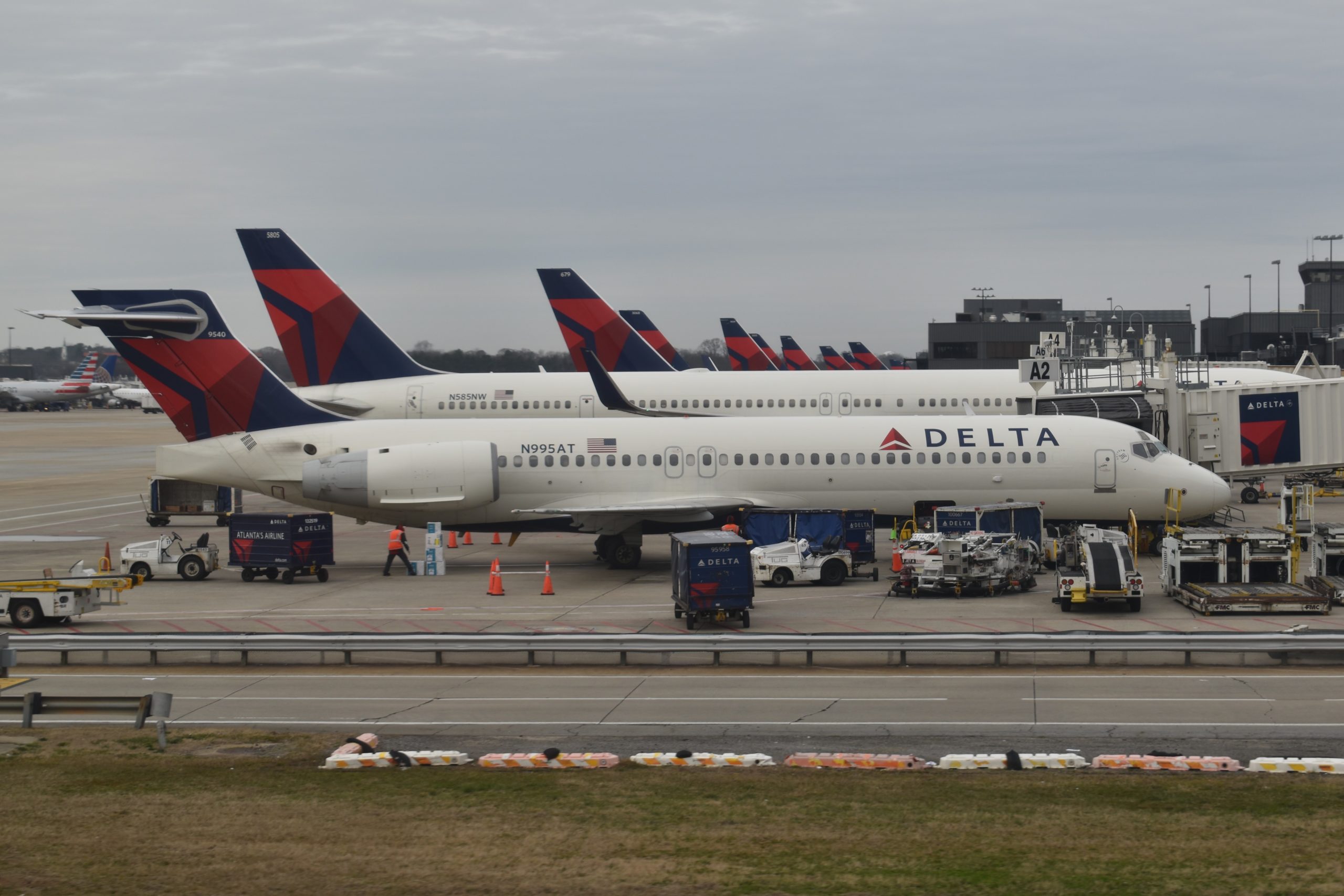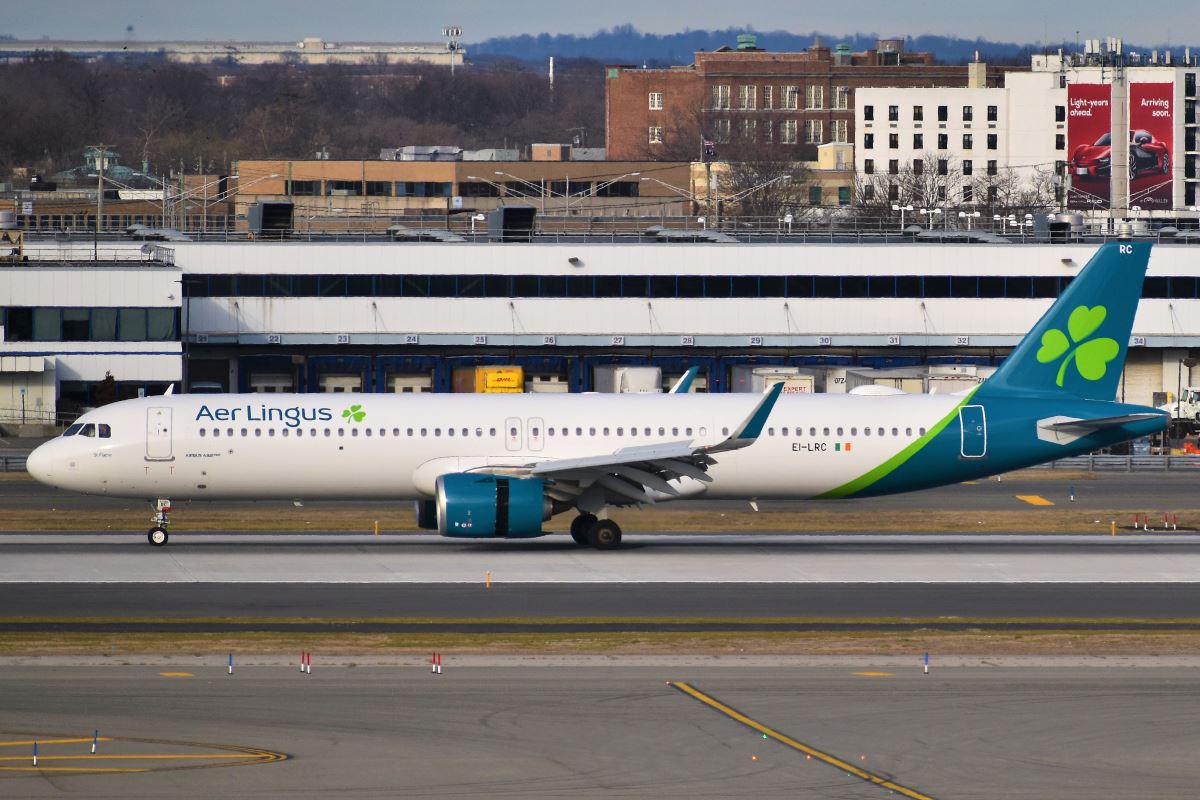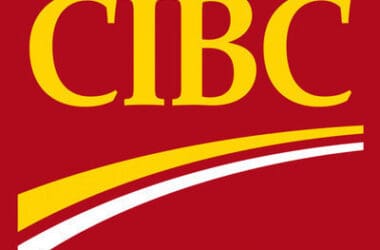Basic fares have a love-hate relationship in the travel community. They are incredibly inflexible, and for the most part, are designed to encourage incremental revenue for the airlines. On my last post, I spoke about why I love schedule changes. In this post, I am going to write about how I always book Basic Fares for my family members, with the expectation, that I can refund them if my travel plans change.
Wait, what? You might ask.
Conditions of a Basic Fare
For those of you who already know, there are two main conditions with the purchase of any basic fare on Air Canada or WestJet:
- Your fare is non-refundable.
- Your fare is non-changeable.
WestJet and Air Canada both also provide a warning prior to selling you a Basic Fare ticket, because of the number of restrictions on the ticket. The pop-up for WestJet is shown below:
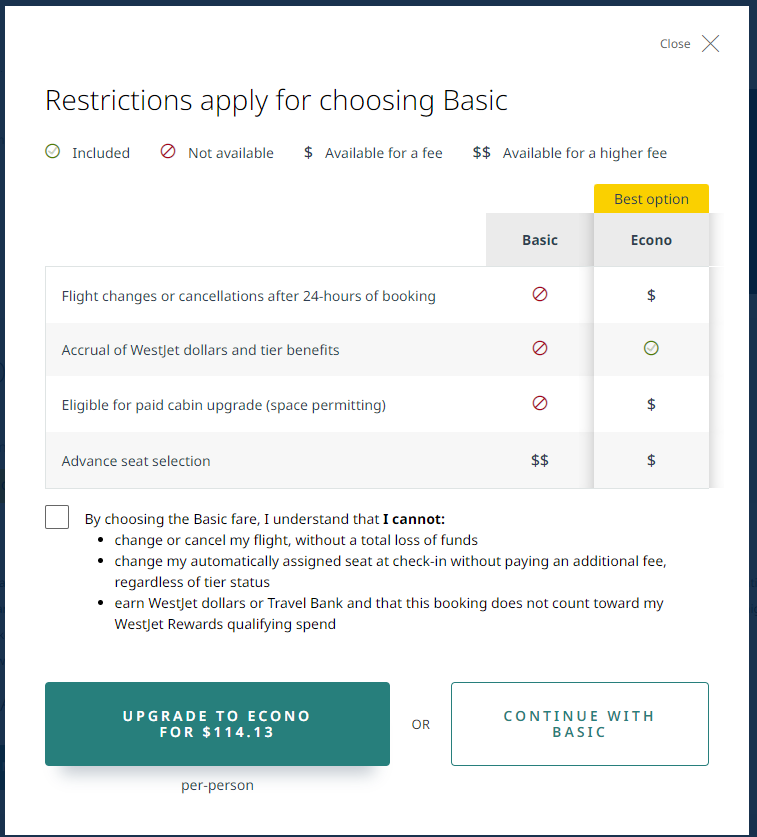
Or really, if you purchase a ticket, you fly the ticket as-is. There are no loyalty benefits. You pay extra for seat selection. And I suspect, they will be very happy to give you a last row middle seat for the privilege of booking Basic Economy.
Why I Book Basic Fares
I love booking Basic Fares because it saves me money. Ultimately, that is the most important part of my travel philosophy.
Strategizing Booking Basic Fares
I typically find Air Canada and WestJet do a schedule change, every three to four months. Most of the schedule changes are by a few minutes. I have discovered, a few minutes is long enough to ensure that both airlines will allow you a complimentary one-time change. You can either change your flight or obtain a full refund back to the original payment method.
Schedule changes are most likely to occur on flights with an arrival time that does not round to the nearest five minutes. As an example, the following picture shows all the upcoming Air Canada flight arrivals into Vancouver (YVR). All the international long-haul destinations have an arrival time rounded to the nearest five minutes; Auckland lands at 6.15am and Bangkok lands at 6.35am. The other flights, from Toronto (12.03am), Fort St. John (6.49am), Victoria (6.56am), Seattle (6.58am), and Honolulu (6.59am) are all arriving rounded to a specific minute.
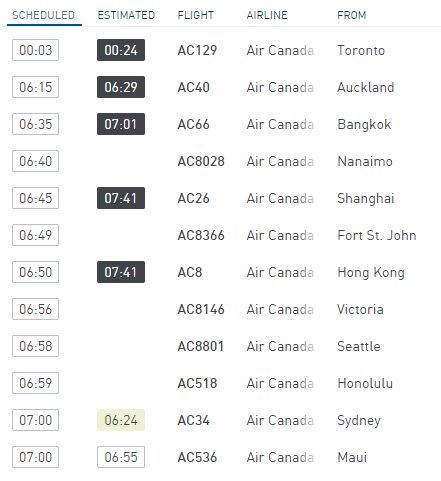 In my experience, flights that are rounded to a specific minute, are most likely to have a schedule change. Because it does not take much for a flight arrival time to go from 12.03pm to 11.59am. Typically, that is sufficient to warrant a one-time change on your reservation.
In my experience, flights that are rounded to a specific minute, are most likely to have a schedule change. Because it does not take much for a flight arrival time to go from 12.03pm to 11.59am. Typically, that is sufficient to warrant a one-time change on your reservation.
Flights from Shanghai, Bangkok, Auckland, and Hong Kong are rarely likely to have any drastic flight schedule changes, so I avoid them.
There are some domestic flights, like Naniamo (6.40am) and Maui (7am) that are landing rounded to the nearest 5 minute. I think that is just a co-incidence personally, as other flights of similar duration, are landing at a particular minute. So, I would also be comfortable booking those flights hoping for a schedule change.
Why I love Air Canada and WestJet Basic Fares
When booking travel more than four months out, on either Air Canada or WestJet, I immediately book Basic tickets for my family. I am virtually guaranteed a schedule change that will allow me to cancel or change my flights as we approach our departure date.
So far, I have always been able to convert my Air Canada or WestJet basic fare, to a refundable fare, every single time, due to the frequency of schedule changes.
Caveat… A Really Big One
It’s not supposed to be this way. When a minor flight schedule change occurs, your reservation is not officially eligible for a one-time change. However, in my experience, IT systems do not actually prevent you from making a one-time change. In many cases, it is about convincing an agent to try and make the change on your behalf. Most of the times they are pleasantly surprised, which means everyone is happy at the end of the day.
However, it is important to note, I will never know when the IT bug is resolved. Once the bug is resolved, changes with very minor schedule changes will no longer be a viable solution.
Conclusion
If you are booking travel, far out in advance, it is okay not to have the most optimal flights. As long as you have a flight that is likely to be impacted by a schedule change, a Basic Fare could provide a significant savings while maintaining the flexibility you might require when booking far in advance.





